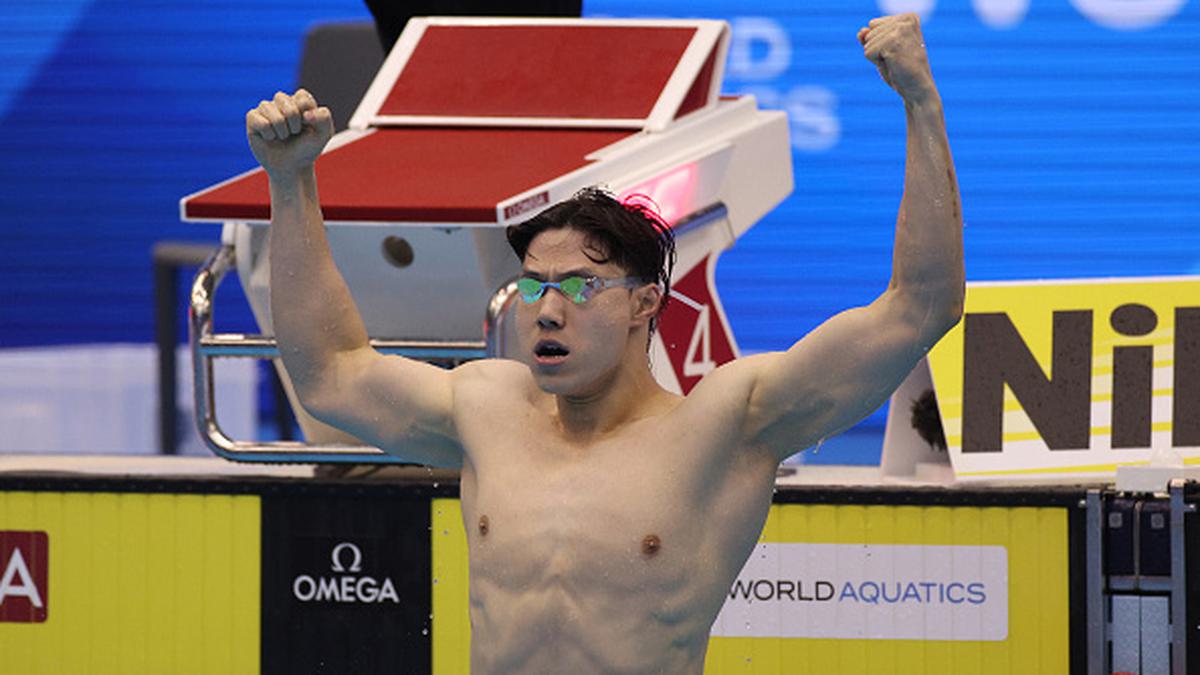Paris 2024: Eleven swimmers in doping scandal named in China Olympic team
China will send 11 swimmers implicated in a major doping scandal to next month’s Paris Olympics, after the country named its squad for the Games.
Twenty-three Chinese swimmers tested positive for the heart drug trimetazidine (TMZ) — which can enhance performance — ahead of the pandemic-delayed 2021 Tokyo Games, it emerged in April.
They were not sanctioned after the World Anti-Doping Agency (WADA) accepted the argument of Chinese authorities that the positive tests were caused by food contamination.
Several of the swimmers went on to win medals, including gold, in Tokyo months later.
READ | Australia Olympic swimmers urged not to be distracted by China doping scandal
China named its swimming squad for Paris on Tuesday. Among them were 11 of the 23 who were named in news reports in April that broke the story about the mass positive tests.
The squad includes butterfly specialist Zhang Yufei, who won two golds in Japan, as well as another gold medallist in Wang Shun.
Breaststroke multiple world champion and 200m record-holder Qin Haiyang is another who was named in the reports and will go to Paris.
In April, The New York Times and German broadcaster ARD reported that 23 Chinese swimmers tested positive for TMZ at a domestic competition in late 2020 and early 2021.
It was determined by Chinese anti-doping authorities that they ingested the substance unwittingly from tainted food at their hotel and no action against them was warranted.
WADA’s decision not to punish the swimmers and allow them to carry on competing provoked intense criticism, particularly from the United States.
There was also anger at how the case emerged, via media reports rather than official channels.
The head of the US national anti-doping agency Travis Tygart called it a “potential cover-up”, an allegation WADA and China have strongly denied.
WADA has said it will send a compliance audit team to China to “assess the current state of the country’s anti-doping programme”, an investigation that China has said it will cooperate with.
Scrutiny in Paris
This month The New York Times reported that Qin, Wang and another swimmer had also tested positive for a different banned substance in separate cases several years earlier.
The Times said the three tested positive for clenbuterol in 2016 and 2017.
Chinese authorities argued they had ingested the substance inadvertently through contaminated meat and no disciplinary action was taken.
WADA said the trio were found to have levels of clenbuterol which were between “six and 50 times lower” than the minimum reporting level currently used by the agency.
In a statement to AFP, China’s anti-doping body hit back this week, calling the latest Times story a violation of “media ethics and morals”.
Along with powerhouses the United States and Australia, China will expect to be among the swimming medals when the Paris Olympics begin on July 26.
China’s swimmers will however be under intense added scrutiny.
“You know, when we put everything on the line… everything that we do to compete with a level playing field, it’s extremely frustrating to not have faith that others are doing the same thing,” she said.
Australia’s head swimming coach Rohan Taylor urged his team to focus on themselves.
“We have to trust that WADA and (governing body) World Aquatics are going to continue to investigate and that we are aligned with a clean sport,” he said.


